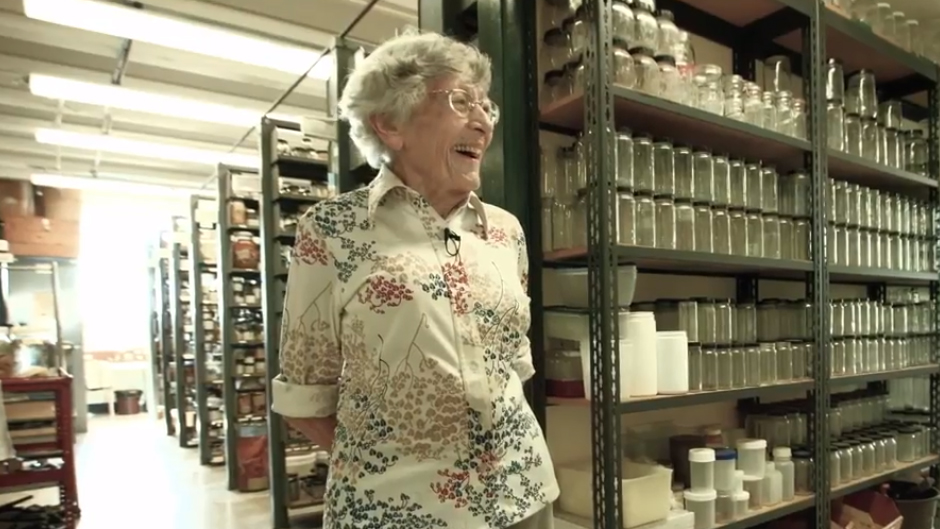Many visitors to the University of Miami campus stroll through the art collections housed at the Lowe Art Museum or thumb through special collections at the Otto G. Richter Library, but few visitors have ever even heard about the rare collections at the University of Miami Marine Invertebrate Museum.
This museum – fittingly housed on the Virigina Key campus of the Rosenstiel School of Marine and Atmospheric Science – not only showcases well-known creatures like crabs, shrimp, starfish and octopus, but also some of the world's most unusual ocean dwellers, from giant sea roaches to giant squid. Except for the cephalopod collection, which is home to preserved squid and octopus from around the world, nearly 100 percent of the other backboneless creatures preserved there are from tropical Atlantic waters.
“These collections continue to be of increasing importance for research in the marine field with each passing year,” says Nancy Voss, M.S. ’54, a research professor emerita at the Rosenstiel School and current museum director.
More than 60 years after her involvement as a Rosenstiel School graduate student began, Nancy Voss, M.S. '54, continues to grow the museum and make sure its treasure trove of marine life remains available for research work and for loan.
Increasingly, says Voss, who is a squid expert, geneticists and medical researchers have been contacting her with an interest in finding new natural products from the ocean that may help cure human diseases. She maintains close collaborations around the world to provide this invaluable invertebrate resource to scientists who are hunting for everything from a species that may hold a potential cure for cancer to a better understanding of the marine environment. In 1995, one of the top specialists in marine worms from the University of Havana did extensive work in the museum’s very large and important polychaete, or marine worm, collection.
So far more than three-quarters of the museum’s collections are catalogued, and Voss hopes to digitize the remainder in order to bring the entire collection to an even larger audience.
Though she receives very little financial support for her work to keep the invertebrate museum operating, Voss believes it is important to maintain the rich repository she and her late husband helped pioneer, both to further scientific understanding and discovery, and because, in her words, “it’s a challenge, and I love challenges.

